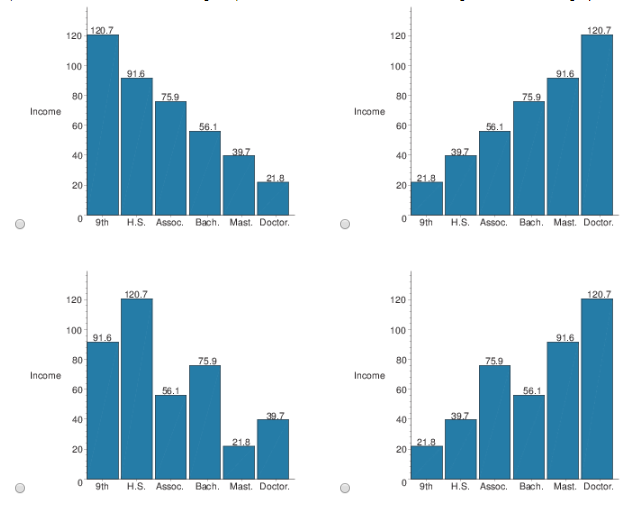9 Education College
Only 8.8% of those with some college education and 4.8% of those with a bachelor’s degree live in poverty. Get Access to Career-Track Jobs. When considering why you should go to college, it’s.
The Post-9/11 GI Bill (Chapter 33) helps you pay for school or job training. If you’ve served on active duty after September 10, 2001, you may qualify for the Post-9/11 GI Bill (Chapter 33). Find out if you can get this education benefit.

- September 13, 2020 NINE EDUCATION rises high with success in JEE Main 2020 (January) results that were released today. With the outstanding performance of the following students in General Category, 69 students out of 110 students who attempted JEE.
- 9 Documentaries on Netflix that focus on education. Don’t just veg out with another mindless sitcom. With so many incredible education documentaries on Netflix, you can stay sharp while you relax. Get the popcorn ready and settle in for an evening with these informative education.
- Free Higher Education News, Jobs, Career Advice and Events for college and university faculty, adjuncts, graduate students, and administrators.

Am I eligible for Post-9/11 GI Bill (Chapter 33) benefits?
You may be eligible for education benefits if you meet at least one of the requirements listed below.
At least one of these must be true. You:
- Served at least 90 days on active duty (either all at once or with breaks in service) on or after September 11, 2001, or
- Received a Purple Heart on or after September 11, 2001, and were honorably discharged after any amount of service, or
- Served for at least 30 continuous days (all at once, without a break in service) on or after September 11, 2001, and were honorably discharged with a service-connected disability, or
- Are a dependent child using benefits transferred by a qualifying Veteran or service member
Note: If you’re a member of the Reserves who lost education benefits when the Reserve Educational Assistance Program (REAP) ended in November 2015, you may qualify to receive restored benefits under the Post-9/11 GI Bill.
What if I qualify for other VA education benefits too?
You’ll have to pick which benefit you’d like to use. This is an irrevocable decision, meaning you can’t change your mind.
What benefits can I get through the Post-9/11 GI Bill (Chapter 33)?
You can receive up to 36 months of benefits, including:
- Tuition and fees. If you qualify for the maximum benefit, we’ll cover the full cost of public, in-state tuition and fees. We cap the rates for private and foreign schools, and update those rates each year.
View current rates - Money for housing (if you’re in school more than half time). We’ll base your monthly housing allowance on the cost of living where your school is located.
- Money for books and supplies. You can receive up to $1,000 per school year.
- Money to help you move from a rural area to go to school. You may qualify for this one-time payment of $500 if you live in a county with 6 or fewer people per square mile and you’re either moving at least 500 miles to go to school or have no other option but to fly by plane to get to your school.
Here’s how we’ll determine how much of the benefit you’ll qualify for:
The specific amount you’ll receive will depend on how much active service you’ve had since September 10, 2001. We’ll calculate this amount based on a percentage of the maximum benefit.
For example: If you had 90 days of active service since September 10, 2001, you would qualify for 40% of the maximum amount. If you served for 3 years, you would qualify for 100% of the benefit. So if your school charges $22,000 for in-state tuition and fees, you would receive $8,800 if you had 90 days of active service and the full $22,000 if you had 3 years of active service.
Note that this will change August 1, 2020. In this example, 90 days of active service would qualify you for 50% of the maximum amount as of August 1, 2020.
Do these benefits expire?
This depends on when you were discharged from active duty.
If your service ended before January 1, 2013, your Post-9/11 GI Bill (Chapter 33) benefits will expire 15 years after your last separation date from active service. You must use all of your benefits by that time or you’ll lose whatever’s left.
If your service ended on or after January 1, 2013, your benefits won’t expire thanks to a new law called the Forever GI Bill - Harry W. Colmery Veterans Educational Assistance Act. Some letters you receive from us may not yet reflect this change. Thank you for your patience as we work to update our systems.
Learn more about this new law
How do I get these benefits?
You’ll need to apply.
Apply for education benefits
The benefit amount depends on which school you go to, how much active-duty service you’ve had since September 10, 2001, and how many credits or training hours you’re taking.
How do I know how much of my Post-9/11 GI Bill benefits are left?
If you already applied for and were awarded Post-9/11 GI Bill education benefits, your GI Bill Statement of Benefits will show you how much of your benefits you’ve used and how much you have left to use.
View your GI Bill Statement of Benefits
Can my family members or I get any additional benefits through the Post-9/11 GI Bill (Chapter 33)?
You may qualify for these additional benefits:
- If you need more money to cover higher private-school or out-of-state tuition, you can apply for the Yellow Ribbon Program.
Learn about the Yellow Ribbon Program
Find a Yellow Ribbon school - If you’re a qualified service member, you can transfer all 36 months or a portion of your Post-9/11 GI Bill benefits to a spouse or child. The Department of Defense approves a transfer of benefits.
Learn about transferring Post-9/11 GI Bill benefits - If you’re the child or surviving spouse of a service member who died in the line of duty after September 10, 2001, you may qualify for the Marine Gunnery Sergeant John David Fry Scholarship (Fry Scholarship).
Learn more about the Fry Scholarship
How can I use my Post-9/11 GI Bill (Chapter 33) benefits?
You can use your GI Bill benefits in many ways to advance your education and training.
Work toward a degree:
9 Education College Board
Train for a specific career, trade, or industry:
Work while you study:
Take classes from home:
What is the Location-Based Housing Allowance (Section 107)?
What is Section 107 (Location-Based Housing Allowance)?
Previously, GI Bill beneficiaries were paid Monthly Housing Allowance (MHA) based on the main or branch campus of the school they were enrolled. If a student attended classes at more than one location, they were paid the rate that was most advantageous.
Now, MHA is based on the campus location where the student physically attends the majority of their classes.
VA’s campus definitions:
- Main campus: A location where the primary teaching facilities of an educational institution are located.
- Branch campus: A location of an educational institution that is geographically apart from and operationally independent of the main campus of the educational institution.
- Extension campus: A location that is geographically apart from the main or branch campus but is operationally dependent on that campus for the performance of administrative tasks.
Get more information
- Compare benefits by school.
Use the GI Bill Comparison Tool - Read our guides on the GI Bill:
Choose your education pathway (PDF)
Understand your benefits (PDF)
Further your career (PDF)
GI Bill® is a registered trademark of the United States Department of Veterans Affairs (VA). The absence of the registration symbol ® does not constitute a waiver of VA’s trademark rights in that phrase.
Read our Terms of Use
More helpful information
College Education Rankings
Edith Nourse Rogers STEM Scholarship
This scholarship allows some eligible Veterans and dependents in high-demand fields to extend their Post-9/11 GI Bill or Fry Scholarship benefits. Find out if you’re eligible for added benefits and how to apply.